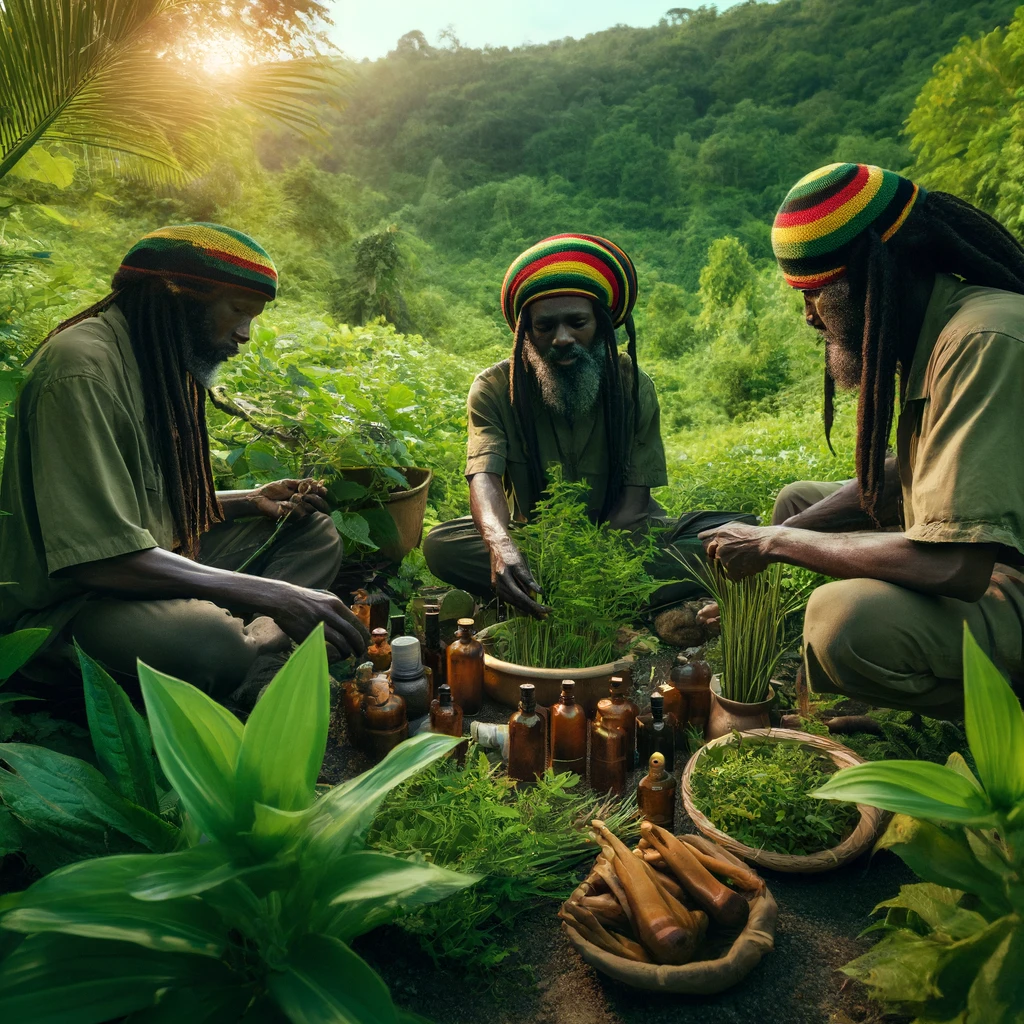Introduction: In the heart of Jamaica’s lush landscapes, Rastafarians find a treasure trove of healing plants. These natural remedies are integral to the Rastafari way of life, promoting health, spirituality, and harmony with nature. Join mi on a journey as mi explore the search for these healing plants and their uses in Rastafari culture.
Setting Out: Early one morning, mi set out with mi brethren into the Jamaican countryside, ready to explore the rich biodiversity of our island. The air was fresh with the scent of dew, and the vibrant greenery stretched out as far as mi eyes could see. Armed with our knowledge and respect for nature, we began our quest to find the plants that have been used for generations to heal and nourish our community.
Searching for Healing Plants:
1. Cerasee (Bitter Melon): One of the first plants we looked for was cerasee. This climbing vine is known for its bitter taste and potent healing properties. In Rastafari culture, cerasee tea is commonly used to cleanse the blood, detoxify the body, and treat ailments like colds and stomachaches. The leaves and vines are boiled to make a strong, purifying tea that is a staple in many households.
2. Fever Grass (Lemongrass): Fever grass, or lemongrass, is another essential plant. Its tall, fragrant stalks are used to make a soothing tea that helps reduce fever, relieve stress, and aid digestion. We carefully harvested the long blades, knowing that this versatile plant would bring comfort and healing to those who needed it.
3. Guinea Hen Weed: Known for its pungent aroma, guinea hen weed is a powerful medicinal plant used to treat a variety of ailments. Rastafarians use it for its anti-inflammatory and pain-relieving properties. It’s often prepared as a tea or poultice to alleviate symptoms of arthritis, colds, and infections. As we gathered the leaves, we respected its strong spirit and healing energy.
4. Aloe Vera: Aloe vera, with its fleshy, succulent leaves, is prized for its soothing and healing properties. We found a cluster of aloe plants and carefully harvested their leaves. The gel inside is used to treat burns, cuts, and skin conditions. It’s also consumed to promote digestive health and detoxification. In Rastafari culture, aloe vera is a symbol of resilience and natural healing.
Uses in Rastafari Culture: These healing plants are not just remedies; they are a part of our spiritual practice. The process of gathering, preparing, and using these plants is done with reverence and gratitude. We believe that nature provides all we need to maintain balance and health. Using these plants connects us to the earth and to Jah, reinforcing our commitment to living naturally and sustainably.
Closing Thoughts: Mi journey to find healing plants in Jamaica is a testament to the rich natural heritage of our island and the wisdom passed down through generations. These plants play a vital role in Rastafari culture, offering natural remedies that nurture the body and spirit. By embracing the healing power of nature, we honor Jah’s creation and promote a holistic approach to health and well-being.

